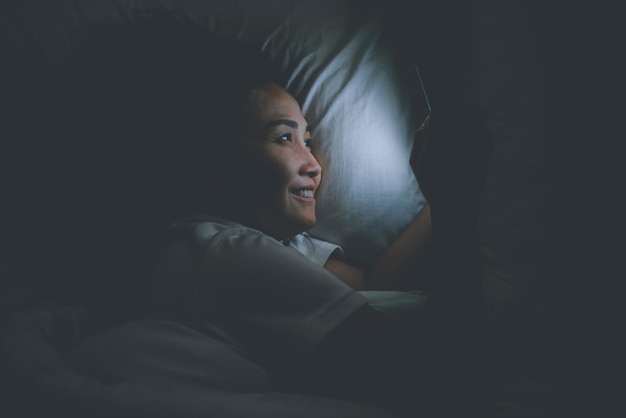
Overview
In the quest for a good night’s sleep, some people turn to melatonin. Although your body produces this sleep hormone naturally, some take it as a supplement. But is melatonin safe?
Whether you struggle to fall asleep or stay asleep, melatonin may seem like a natural alternative to pharmaceuticals and over-the-counter sleeping pills. While melatonin is generally safe for short-term use, taking it regularly over the long term may worsen your sleep issues. Read on to find out why.
What Is Melatonin?
Melatonin is often called the “Dracula of hormones” because it comes out in darkness; your levels are higher at night. Produced by the pineal gland in the brain, melatonin promotes sleep. Your body’s internal clock determines how much melatonin the pineal gland secretes.
The amount of melatonin your body produces varies by time of day, age, and other factors. Children make more of this hormone than adults, and production drops as you get older. Light exposure and exercise also affect melatonin levels.
According to the National Center for Complementary and Integrative Health, more than 3.1 million people take melatonin each year, with almost half a million giving it to children.
Where Can I Get Melatonin?
As a dietary supplement, melatonin is available in capsule, chewable tablet, or liquid form. Time-release melatonin delivers some to your brain when you first take it and more during the night to promote a normal sleep cycle.
Melatonin also occurs in certain foods like tart cherries, asparagus, tomatoes, olives, oats, and walnuts.
Is Melatonin Safe?
Melatonin is generally safe for short-term use for most people, but long-term use can reduce the body’s natural production of the hormone, potentially worsening insomnia. Richard Wurtman, an MIT neuroscientist, has raised concerns about prolonged use, suggesting it can amplify insomnia.
Top 6 Health Benefits of Melatonin
1. Improves Sleep
Melatonin helps you fall asleep faster, increases total sleep time, and improves sleep quality. On average, people taking melatonin fall asleep seven minutes faster and sleep eight minutes longer.
2. Supports a Healthy Immune System
Melatonin acts as an immune system buffer, stimulating or toning down the immune response as needed. It may also boost the production of immune cells like NK cells.
3. Has Antioxidant Powers
Melatonin prevents oxidative cell damage by binding to reactive oxygen species and nitrogen free radicals. Its effects are strongest in the central nervous system, brain, and heart.
4. Protects Against Neurological Disorders
Melatonin’s antioxidant and anti-inflammatory properties may protect the brain against age-related neurological conditions like Alzheimer’s and Parkinson’s disease.
5. Acts as a Stress Buffer
Melatonin may help relieve stress and improve mood by regulating circadian rhythms. During short-term stress, supplemental melatonin might help you get more sleep.
6. Helps Jet Lag
Melatonin can reset your internal clock when taken close to your desired bedtime, making it easier to fall asleep after traveling across time zones.
When Should You Take Melatonin?
Take melatonin as a dietary supplement in the evening, around two hours before bedtime. This timing allows it to complement your body’s natural production. Night-shift workers may want to consider alternative natural sleep remedies.
Melatonin Side Effects
While melatonin is generally safe, it can interact with medications like birth control pills and sedatives. Common side effects include dizziness, headache, nausea, irritability, next-day grogginess, and low-level depression. Frequent use may reduce your body’s natural production, worsening insomnia.
Should You Take Melatonin?
Before taking any supplement, try behavioral solutions first. Identify and change factors disrupting your sleep, such as caffeine intake or stress. Turn off electronic devices at night, as their light can neutralize melatonin’s effects. Consider natural remedies like valerian root, which supports restful sleep without the side effects of melatonin.
Points to Remember
Melatonin is a hormone produced by the pineal gland that plays a vital role in the sleep-wake cycle. Supplements can help you fall asleep faster and improve sleep quality, but long-term use may reduce natural production. Consider natural remedies like valerian root for a safer alternative.



